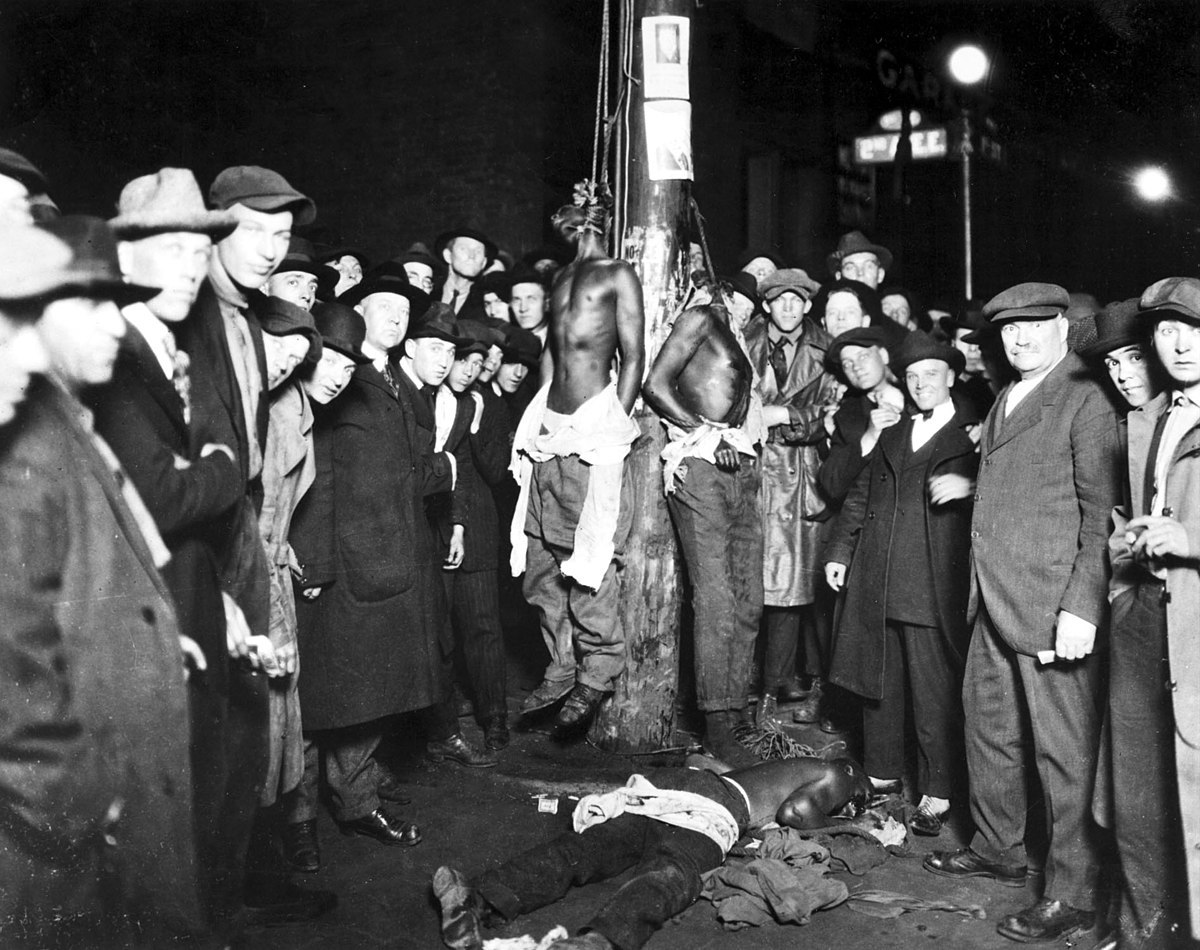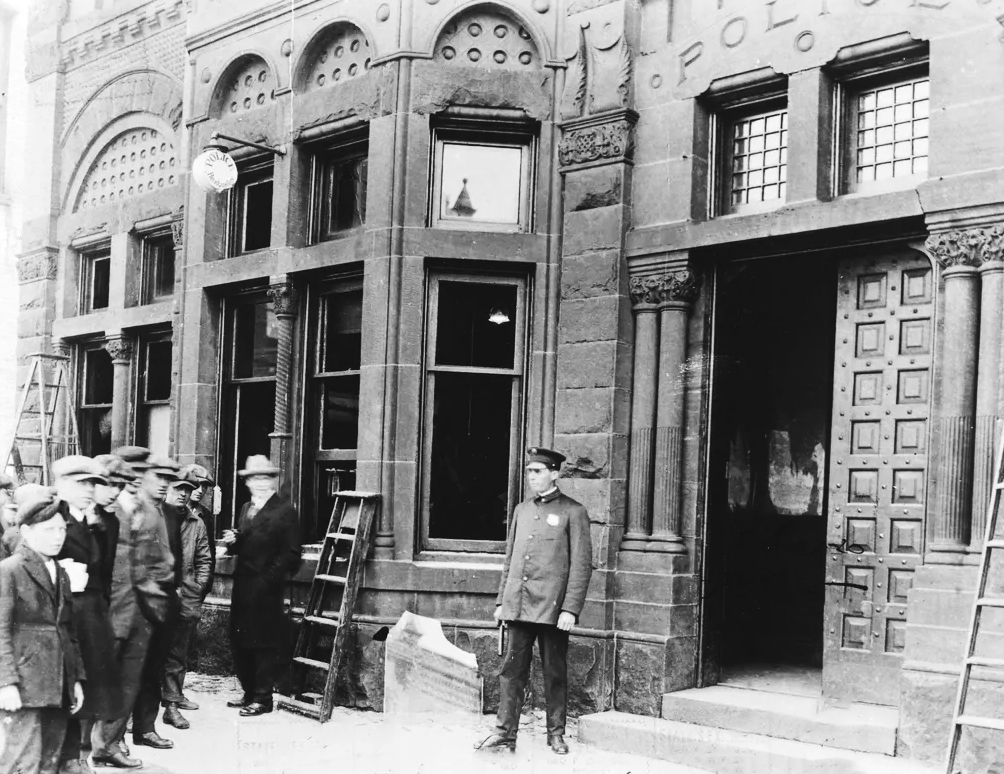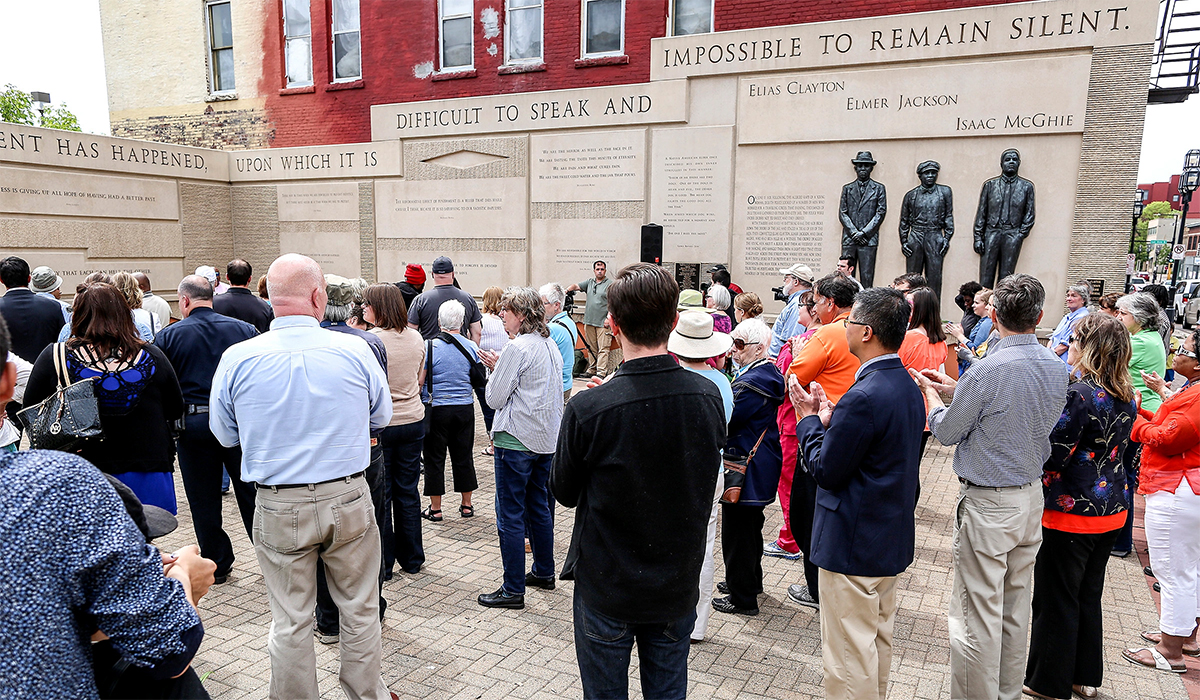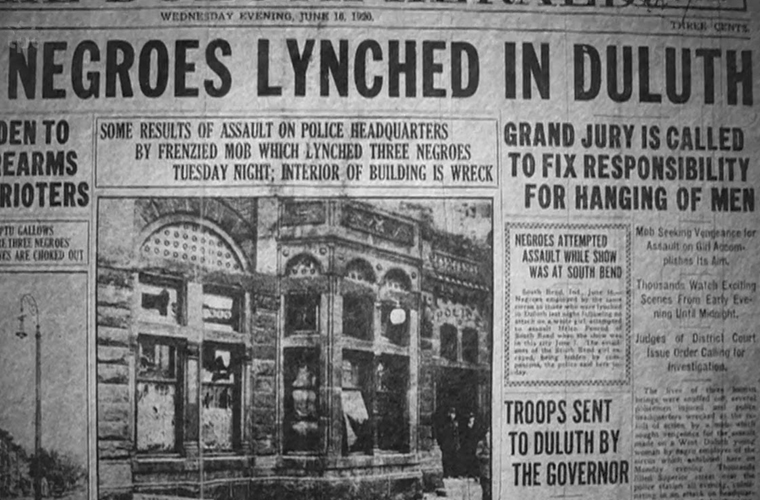The Duluth lynchings of 1920 refer to a tragic incident of racial violence that occurred in Duluth, Minnesota, in June 1920. The incident involved the lynching of three African-American men who were wrongly accused of raping a white woman. On June 15, 1920, a white woman named Irene Tusken claimed that she had been raped by six African-American circus workers. The men accused of the crime were Isaac McGhie, Elmer Jackson, and Elias Clayton. The accusations quickly spread throughout the community, fueling racial tensions and anger among the white population.

The following evening, a mob of thousands of white residents gathered outside the Duluth City Jail, demanding the release of the accused men to take matters into their own hands. Despite efforts by local authorities to maintain control, the mob eventually overwhelmed the police and gained access to the jail.

Isaac McGhie, Elmer Jackson, and Elias Clayton were forcibly taken from their cells and brought to a lamppost at the intersection of 1st Street and 2nd Avenue East. There, they were brutally beaten, lynched, and left hanging for hours as a warning to other African Americans. The incident drew national attention and became a symbol of racial violence and injustice. It revealed the deeply entrenched racism and discrimination present in many parts of the United States at the time.

The Duluth lynchings had a lasting impact on the community and the nation. They contributed to the ongoing struggle for civil rights and racial justice, highlighting the urgent need for change. In recent years, efforts have been made to remember the victims and educate the public about this dark chapter in Duluth’s history. Memorials and events commemorating the victims serve as reminders of the importance of confronting and addressing racial violence and inequality.


